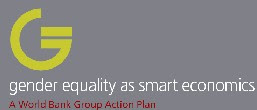Department, Latin America and the Caribbean Region
invite you to a launch of a recent World Bank publication
Hospital Performance in Brazil: The Search for Excellence
Hospitals are at the center of the health care universe in Brazil and are
critical to the health of many Brazilians. Hospitals are just as critical to the
health of the government?s budget, absorbing nearly 70 percent of public
spending on health, and are thus at the forefront of policy discussions. Why
hospitals are important is easy to understand. What makes hospitals deliver
quality care efficiently?or not?is much harder to grasp.
Drawing on an eclectic array of research and evaluative studies selected from a
mix of sources, Hospital Performance in Brazil: The Search for Excellence,
analyzes Brazilian hospital performance along several policy dimensions,
including resource allocation and use, payment mechanisms, organizational and
governance arrangements, management practices, and regulation and quality.
Although a few Brazilian hospitals are world-class centers of excellence, many
hospitals, including those who serve Brazil?s poorest, are low performers. Yet
the Brazilian hospital system is both dynamic and pluralistic, and herein lies
its strengths. As is shown throughout the book, Brazil does not lack
approaches, ideas, innovations, and initiatives for addressing the shortcomings
of underperforming facilities. The foundations for change aimed at raising
performance are present throughout the country?s hospital system. Building upon
these foundations, an agenda for hospital reform is proposed that synthesizes
policies and practices which are integral to improving hospital performance, and
which should help policymakers and practitioners in their ?search for
excellence.?
Tuesday, May 27
3:00 - 5:00pm
World Bank J Building
Auditorium J1-050
For non Bank staff, please RSVP to infoshopevents@worldbank.org
CHAIRED BY
Julian Schweitzer
Director, Health, Nutrition and Population Team, World Bank
PRESENTED BY AUTHOR
Jerry La Forgia
Lead Health Specialist, Human Development Department, Latin America and the
Caribbean Region
DISCUSSED BY
Maureen Lewis
Advisor, Office of Vice President, Human Development Network, World Bank
Mukesh Chawla
Sector Manager, Health, Nutrition and Population Team, World Bank
John Briscoe
Country Director, Brazil, World Bank
Robert Murray
Executive Director, Health Services Cost Review Commission, State of Maryland
____________________________________________________________________________________________________________________________________
About the InfoShop
The InfoShop is the public information center of the World Bank and serves as a
forum for substantial debate on international development. Our extensive events
program consists of more than 250 events over the past two years and has hosted
many internationally recognized speakers including Queen Noor, Francis Fukuyama,
Jeffrey Sachs, Amartya Sen, Joseph Stiglitz, Thomas Friedman, and Carly Fiorina.
The InfoShop functions as the only publicly accessible space at headquarters and
provides internal and external audiences with over 15,000 titles published by
the World Bank, international organizations, and other publishers on development
issues.
For more information, visit: www.worldbank.org/infoshop
Comments about the events program: http://go.worldbank.org/TDG9T8O9K0

























